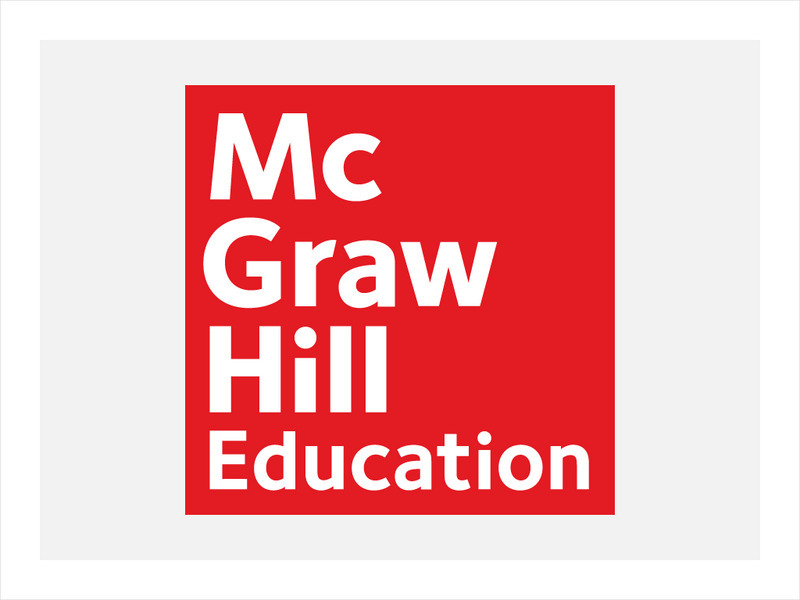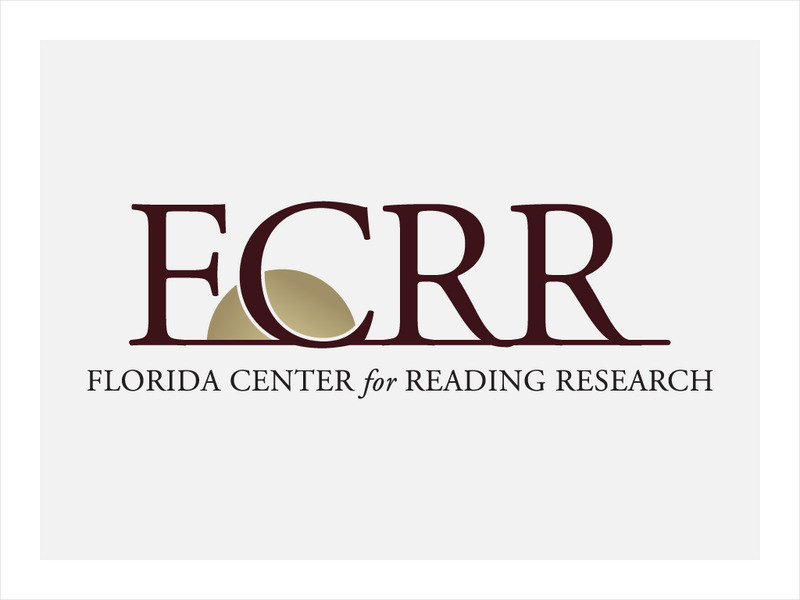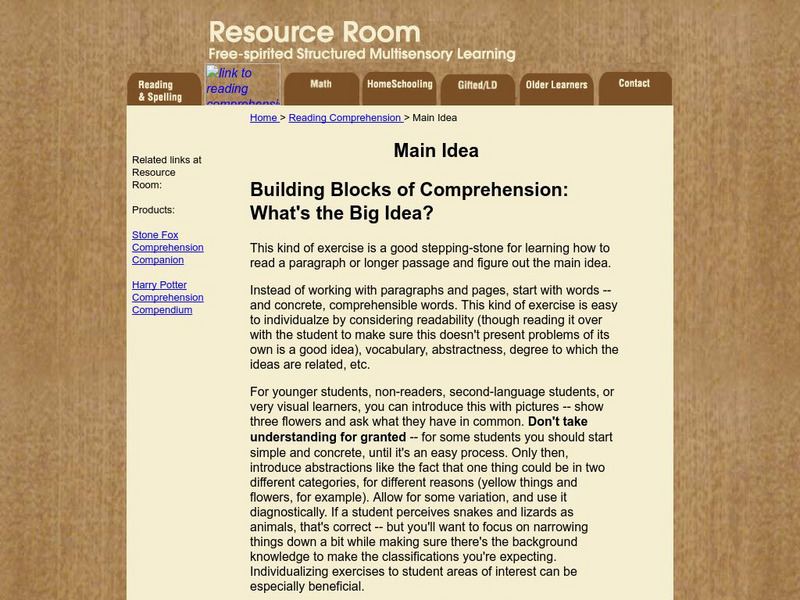Hi, what do you want to do?
Beacon Learning Center
Beacon Learning Center: Web Lesson: Get the Idea
Read through a lesson about main ideas and supporting details to understand their importance. Practice choosing the main idea of three nonfiction paragraphs. Features practice activities to enhance learning.
McGraw Hill
Read: Does Technology Make Us Lazy?
Compare these two passages for some interesting ideas about how technology affects our lives. The questions that follow ask you to identify the main idea from either direct statement or inference.
McGraw Hill
Mc Graw Hill: Informational Text: Determine Central Idea and Supporting Details
To understand a text, you must understand the central idea of the story. Learn how to recognize the central idea and supporting details with this article. Click the links at bottom right.
Florida Center for Reading Research
Florida Center for Reading Research: Expository Text Structure: Just the Facts
A lesson plan in which students read a text and complete a graphic organizer to identify the topic and supporting details or facts. Materials are included.
Education Development Center
Tv411: Summarizing: Activity 3
In this activity, students choose the correct category to which details belong. Being able to categorize helps students to identify the difference between main ideas and details.
CPALMS
Cpalms: What Do You Do With a Tail Like This?
[Free Registration/Login Required] In this instructional activity, young scholars will use What Do You Do With A Tail Like This? by Steve Jenkins and Robin Page to identify the main topic and key details using the illustrations and text....
ReadWriteThink
Read Write Think: Digging Up Details on Worms: Using Science in an Inquiry Study
A lesson plan based on a study unit of earthworms, using the inquiry model to integrate scientific processes with literacy practices. Instruction plans, related resources, and standards are included.
Other
Almond Board of California
A collection of resources about almonds, with many educational pages and fact sheets available in languages other than English. Learn about the nutritional and health value of almonds, how they are grown, and their importance to...
E Reading Worksheets
E Reading Worksheets: Text Structure Worksheets
This site provides several assignments and graphic organizers related to identifying text structures. Analyzing the following types of text structures are provided: main idea and supporting details; cause and effect; chronological order;...
AdLit
Ad lit.org: Classroom Strategies: Seed Discussion
A Seed Discussion is a two-part strategy used to teach students how to engage in discussions about assigned readings. In the first part, students read selected text and identify "seeds" or key concepts of a passage which may need...
Alabama Learning Exchange
Alex: Interpreting Documents on the Ahsge
Students will explore the documents that were used in shaping the United States, before, during, and after its creation. While studying these documents, students will use reading skills to interpret and analyze documents. By the end of...
Other
Resource Room: What's the Big Idea?
This exercise can be used to help students develop understanding of main idea and supporting details. Students are given a list of words to analyze, decide the theme and write a common subject that defines the group.
Polk Brothers Foundation Center for Urban Education at DePaul University
De Paul University: Center for Urban Education: Community Progress? [Pdf]
"Community Progress?" is a one page, nonfiction passage about three community projects in Chicago; each group saw a problem, decided on a solution, and implemented it. It is followed by constructed-response questions which require...
















